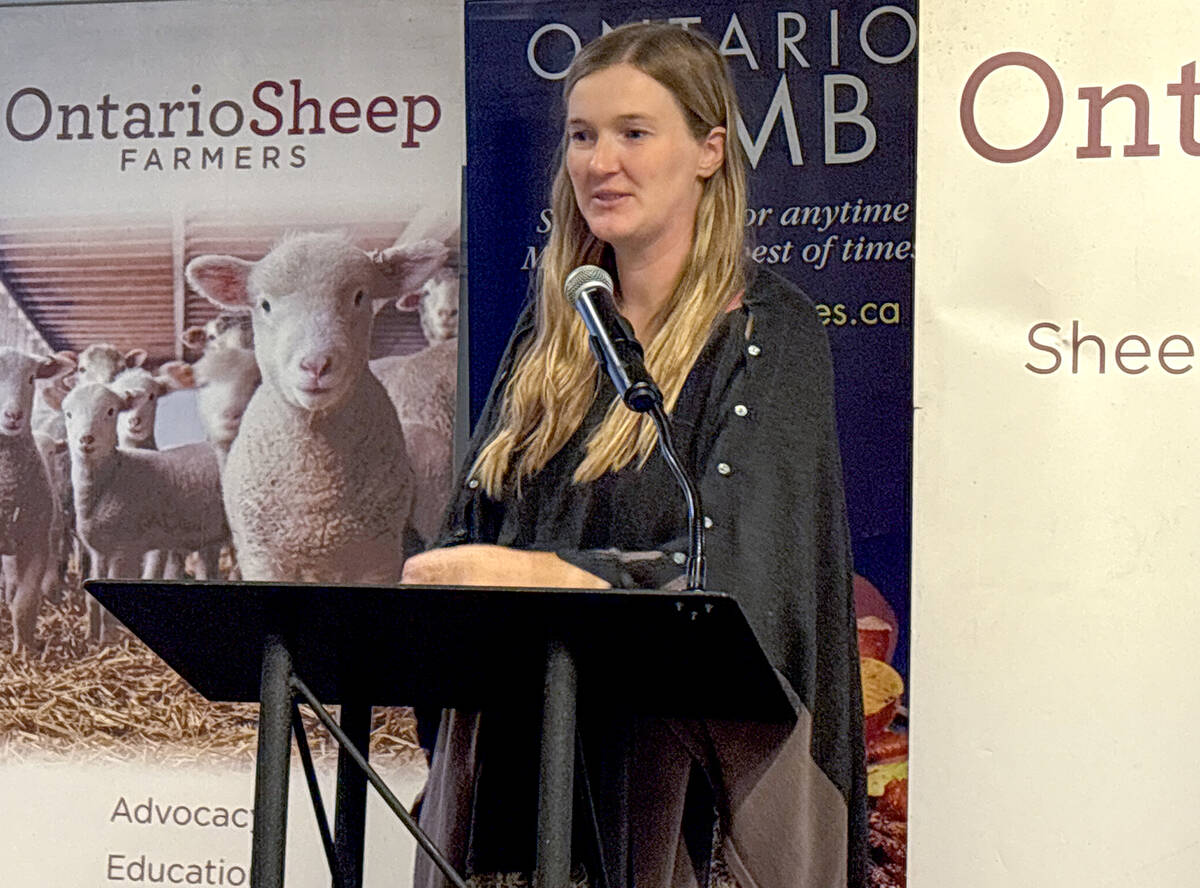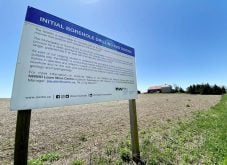Farmers in Wilmot township in the Region of Waterloo are calling into question an assembly of prime farmland.
Farmers and landowners have been approached by a U.S.-based consulting firm acting on behalf of the Region of Waterloo to purchase 770 acres of prime agricultural land.
The Waterloo Federation of Agriculture (WFA) and the Ontario Federation of Agriculture (OFA) said in a release they have been working closely with area farmers to gather information about the rapidly evolving land use situation unfolding in Wilmot Township.
Read Also

Footflats Farm recognized with Ontario Sheep Farmers’ DLF Pasture Award
Gayla Bonham-Carter and Scott Bade, of Footflats Farm, win the Ontario Sheep Farmers’ 2025 DLF Ontario Pasture Award for their pasture management and strategies to maximize production per acre.
In a statement, the farm organizations said farmers and landowners including vegetable, grain and dairy farmers have received offers from Canacre Ltd., a U.S.-based consulting firm, acting on behalf of the Region of Waterloo to purchase 770 acres of prime agricultural land. The stated objective is to rezone this land for industrial use and embark on a significant economic investment and development project, but the region will not disclose details.
The affected landowners are identified as owning property near the intersection of Nafziger Road and Bleams Road, south of New Hamburg. A March 25 CBC article reports that landowners were offered compensation, and were told if they refuse the offer, their land could be expropriated.
In the OFA statement, Nic Weber, president of the Waterloo Federation of Agriculture expressed deep disappointment in the process.
“Area farmers and urban counterparts in Waterloo have enjoyed a 30-year history of positive working relationships and communications, working to achieve a balance of both protecting farmland and ensuring a thriving, vibrant urban community,” said Weber. “There has not been adequate consultation with local communities or consultation with landowners. We need to take the appropriate steps to ensure a thoughtful, long-term planning approach is taken to ensure a healthy productive farming sector for generations to come.”
The OFA said it continues to encourage and recommend utilizing well established best planning practices that promotes “a harmonious use of our landscape for both the interests of today and tomorrow.”
One Wilmot landowner, Stewart Snyder was quoted in the release as believing that the whole community is being “left in the dark.”
The National Farmers Union has added their voice to the opposition as well, calling on lawmakers in the Waterloo region to follow the Provincial Policy Statement 2020, which “maintains that all prime agricultural land be reserved for farming, not development.”
An April 2 NFU press release claimed that farmers were being “bullied” into “farmland theft.”
NFU President and Wilmot-area organic farmer Jen Pfenning said the motivation behind the offers has perplexed her.
“Why farmland”” Pfenning said. “Why prime farmland? I mean, this is not some marginal land that’s barely able to sustain a grazing pasture.”
“The farmers are not interested in selling,” she added. “We’re all left wondering, what? Why? We Just don’t understand.”
Pfenning said she was also initially confused as to how the move could be considered legal under the Provincial Planning Statement.
“It seems that governments have been creatively interpreting the public good language and deciding that that also applies to whatever they think is a good thing, insofar as development or job creation. And it would seem.”
However, Pfenning encouraged resistance.
“We don’t have to accept that because it isn’t legally an ironclad defense,” she said. “Other communities have fought and won and that’s what we’re planning to do.”
The affected landowners and concerned citizens have developed a website, fightforfarmland.com, to provide ongoing information as well as offering the opportunity for others to help, including a petition and lawn signs.
The WFA said it has been working closely with the group of landowners directly affected by the proposed rezoning and development project, sharing information and support, and has been reaching out to all possible channels of support including all three levels of government. The WFA said it “encourages members of the community with concerns to reach out and share them with municipal councillors, Mayors, regional councillors, and the regional Chair as well as their provincial representative at Queen’s Park (Member of Provincial Parliament).”
Contact information for municipal councillors and the local MPP are available on the fightforfarmland website.
Christian Farmers Federation of Ontario (CFFO) president Ed Scharringa issued a statement April 9 condemning the proposed expropriation.
Scharringa said governmental bodies have failed to safeguard the interests of farmers and farmland. “All levels of government should be ashamed that these farmers are even in this position,” he said. “They have been failed by the very system meant to protect them and our farmland.”















